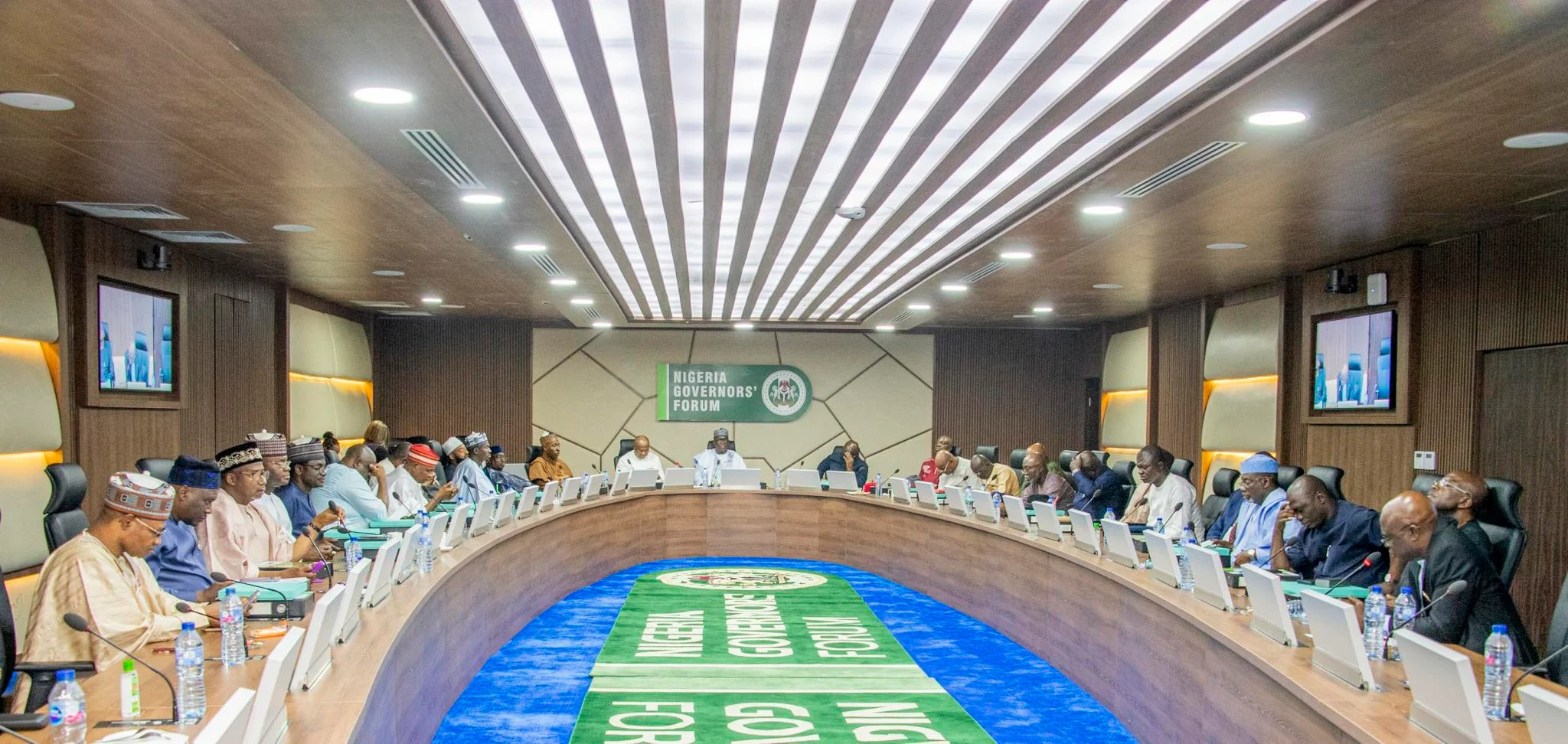
In a landmark development, the Nigeria Governors’ Forum (NGF) has thrown its collective support behind the tax reform bills recently submitted to the National Assembly by President Bola Ahmed Tinubu. The announcement followed a high-stakes meeting held in Abuja on January 16, 2025, between the Governors and the Chairman of the Presidential Fiscal Policy and Tax Reforms Committee, Taiwo Oyedele.
A communiqué issued at the conclusion of the meeting, signed by NGF Chairman and Kwara State Governor Abdulrahman Abdulrazaq, highlighted the governors’ commitment to advancing Nigeria’s tax system while ensuring fairness in revenue distribution. This move marks a significant milestone in the country’s journey toward fiscal modernization and economic stability.
Key Resolutions: A Push for Equity in Revenue Allocation
Central to the communiqué was the NGF’s advocacy for a revised Value-Added Tax (VAT) sharing formula, which seeks to ensure an equitable distribution of resources. The proposed formula allocates 50% of VAT revenue based on equality, 30% based on derivation, and 20% based on population metrics. This approach, the governors argue, will address longstanding disparities in resource allocation and foster national cohesion.
Governor Abdulrazaq emphasized the need for an equitable fiscal framework, stating, “The revised VAT sharing formula underscores our commitment to fairness and transparency. This will not only enhance fiscal stability but also strengthen the federation by ensuring that all states benefit equitably.”
Opposition to VAT Increase and Protection of Citizens’ Welfare
While endorsing comprehensive tax reforms, the governors unanimously opposed any increase in the VAT rate or reduction in Corporate Income Tax (CIT) at this time. This stance reflects their concern for economic stability and the welfare of Nigerians, particularly in light of ongoing economic challenges.
The communiqué also reaffirmed the NGF’s commitment to exempting essential goods and agricultural produce from VAT. This measure aims to shield vulnerable populations and promote agricultural productivity, a cornerstone of the nation’s economy.
Preservation of Development Levies for Key Agencies
Another critical resolution from the meeting was the governors’ insistence that there should be no terminal clause for the Tertiary Education Trust Fund (TETFund), the National Agency for Science and Engineering Infrastructure (NASENI), and the National Information Technology Development Agency (NITDA) in the sharing of development levies. This move underscores the NGF’s recognition of these agencies’ vital roles in driving innovation, education, and technological advancement.
Legislative Endorsement of Tax Reform Bills
The NGF expressed robust support for the legislative process currently underway in the National Assembly to consider and pass the tax reform bills. These include the Nigeria Tax Bill 2024, which provides a comprehensive fiscal framework for taxation, and the Tax Administration Bill, designed to streamline tax collection processes and minimize disputes.
Other notable bills include the Nigeria Revenue Service Establishment Bill, which seeks to replace the Federal Inland Revenue Service with the Nigeria Revenue Service, and the Joint Revenue Board Establishment Bill, aimed at creating a tax tribunal and ombudsman to enhance transparency and accountability.
Background: A Bold Vision for Fiscal Transformation
This latest development follows President Tinubu’s submission of four pivotal tax reform bills to the National Assembly on October 3, 2024. These bills were crafted based on the recommendations of the Presidential Committee on Fiscal and Tax Reforms, chaired by Taiwo Oyedele, to overhaul Nigeria’s outdated tax laws and align them with global best practices.
The NGF’s endorsement represents a significant step forward in realizing the vision of a modernized, efficient, and equitable tax system. By supporting these reforms, the governors have signaled their readiness to collaborate with the federal government in addressing Nigeria’s fiscal challenges and unlocking its economic potential.
Implications for Nigeria’s Economic Landscape
The governors’ resolutions, if implemented, could have far-reaching implications for Nigeria’s economic landscape. The equitable VAT sharing formula promises to reduce regional disparities and foster unity among states. Meanwhile, the commitment to exempt essential goods from VAT underscores a focus on citizen welfare and agricultural growth.
However, the rejection of a VAT rate increase reflects a cautious approach to fiscal reforms, balancing the need for revenue generation with economic stability. Analysts suggest that this balanced stance will be critical in ensuring that the reforms do not exacerbate economic hardships for ordinary Nigerians.
Conclusion: A Collaborative Path to Fiscal Modernization
As the legislative process progresses, all eyes will be on the National Assembly to see how the tax reform bills are deliberated and enacted. The NGF’s proactive engagement and support for these reforms underscore the importance of collaboration in addressing Nigeria’s fiscal challenges.



0 Comments